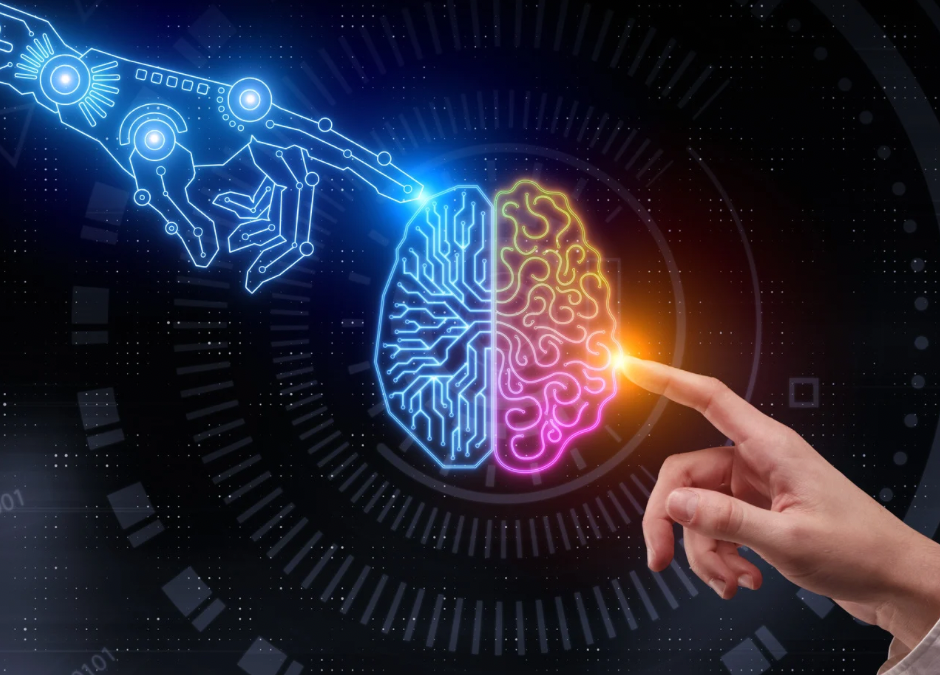
The Future Lawyer Weekly Briefing – W/C 17th June 2024
June 16, 2024
Wilson v Financial Conduct Authority
June 17, 2024By Jasmeen Kaur.
Reading time: four minutes
In this article, we will explore the transformative impact of artificial intelligence (AI) on the legal sector.
We’ll delve into three key areas:
1. What AI can be used for within the Law sector
2. The role of AI in improving client interaction and services.
3. The ethical and regulatory challenges posed by AI in the legal field.
What can AI be used for within the Law sector?
The speed at which technology develops has been astounding, changing industries in previously unthinkable ways. Among these changes is introducing AI into the legal field, which seemed unlikely only a short time ago, given the complicated and typically human-focused nature of legal practice.
According to a new LexisNexis survey on the subject, an overwhelming 95% of legal professionals feel that generative AI will significantly impact the legal profession. AI is increasing productivity on many smaller jobs and automating large ones. Lawyers can now complete activities that were labour- and time-intensive in the past, thanks to generative AI. AI can:
- create memos;
- write papers;
- lead brainstorming sessions;
- develop and negotiate contracts; and
- even check vendor or legal invoices.
With the ability to concentrate on high-value and strategic tasks, the legal professionals’ work approach has experienced a significant change.
For instance, during legal research, lawyers can utilise AI-powered tools to quickly summarise complex legal documents in a way that is clear and easy to understand. An AI-powered legal research assistant called Ross Intelligence is changing the legal research field. It evaluates extensive case law, legislation, and legal databases to give lawyers fast, precise research results. Lawyers can now efficiently obtain relevant details, saving them a great deal of time and leading them to focus on other matters. Due to the complexity of legal work, AI may not be fully capable of handling it accurately. Legal tasks require human judgment and critical thinking, areas where AI is not perfect. Relying entirely on AI for legal matters could lead to mistakes and misrepresentation.
Read this article to find out how ChatGPT can be used professionally at a barristers’ chambers: https://thestudentlawyer.com/2023/12/30/chatgpt-and-the-bar-friend-foe-or-fad/
AI in Client Interaction and Services
AI is the best for client interactions (that is what comes to my mind when I hear AI assisting firms such as clients), and it has been implemented through AI conversational bots.
AI conversational bots in the legal sector can quickly become a lawyer’s best friend. The way legal services are provided is being changed by these intelligent virtual assistants, who easily handle client consultations, information collection, and appointment scheduling. According to Deloitte, “the global conversational AI market, encompassing chatbots and virtual assistants, is projected to grow at a staggering CAGR of 22% during 2020–25, reaching nearly US$14 billion by 2025″. If this project is successful, we should expect to see fewer lawyers answering routine questions from clients. This will save time for both lawyers and clients, as the bot can operate around the clock, whereas lawyers have set working hours and heavy workloads. For instance, Clerks helps clients by setting up appointments, providing general legal advice, and informing them of case developments. Due to Al’s 24/7 accessibility, clients can be guaranteed timely responses, avoiding the limitations of regular office hours and the busy schedules of legal professionals.
Furthermore, personalised engagements provided by AI-driven legal insights and client services significantly increase client engagement and satisfaction. Lawyers can save time using AI to handle repetitive activities, allowing them to build meaningful relationships with their clients. This will also enable lawyers to focus on their client’s legal needs. In addition to building client trust and confidence, this individualised service improves the firm’s reputation and generates favourable recommendations and ratings.
Ethical and Regulatory Challenges of AI in Law
As AI is likely to be used in the legal sector, there are concerns with fairness and biases. For example, it is the lawyer’s responsibility to ensure that they do not use the information generated by systems that depend on introduced bias and that is generally decided through poorly developed AI systems. As explained by the MIT Technology Review; “bias can creep in at many stages. And the standard practices in computer science aren’t designed to detect it”. In these early phases of their adoption, AI technologies can potentially deliver biased or unethical advice, as Kay Firth-Butterfield, head of AI at the World Economic Forum, cautions; “AI tools can give biased and other non-ethical advice and should be used, especially at this early stage, very carefully indeed.”
Read this article on how Al can contribute to creating a more diverse and inclusive legal landscape: https://thestudentlawyer.com/2024/03/11/the-role-of-ai-in-reshaping-diversity-and-inclusivity-in-the-legal-profession/
To guarantee fairness in AI applications, careful examination of the data sources, methods used, and results generated is necessary. Legal professionals must thoroughly assess AI-generated ideas and recommendations to confirm their unbiased nature and accuracy. This level of attention is legally required to maintain standards of justice and equality under the law, in addition to being a matter of best practices.
Moreover, these AI tools may also have issues with transparency. Lawyers must communicate with their clients in a specified manner; for example, they must notify clients immediately of any decision or situation that calls for their informed permission. Lawyers may not be as technologically savvy as they once were, and even specialists may struggle to understand how an AI system arrived at a conclusion because of the “black box” problem—the opaque and complicated workings of AI algorithms. It’s possible that clients and lawyers won’t comprehend how AI makes decisions, which creates questions about transparency and trust in addition to accountability.
Lastly, there may be problems with the duty of confidentiality. Generally speaking, lawyers are not allowed to represent clients when they have a conflict of interest and are obliged by law to safeguard the confidentiality of client information. AI tools frequently call for gathering vast data, some of which may contain private customer information. This sensitive information could be stolen and disclosed without sufficient oversight.
Finally
Even though AI raises issues with transparency, confidentiality, and the upkeep of human interaction, it also greatly increases the productivity of lawyers and provides clients with individualised, round-the-clock service. To avoid biases and guarantee effectiveness, lawyers must first confirm the accuracy and legality of Al. In the years to come, the development of AI in law promises to provide further insights.





